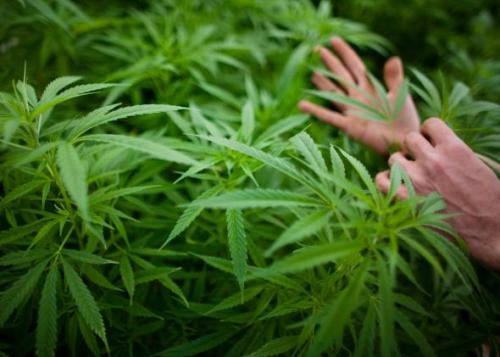
Every living thing has its own natural responses to stress.
When critical nutrients are in short supply, our bodies, for example, find ways to maintain normal function until those nutrients are replenished. Plants do the same. In drought conditions, natural processes kick in to keep them alive until they can be watered again.
When faced with a water shortage, plants produce a stress hormone known as abscisic acid (ABA), which signals the plant to consume less water. ABA binds to a specific protein receptor in the plant, signaling stomata—or unique guard cells—to close and reduce the amount of water lost. This receptor is so important that its discovery by UC Riverside’s Sean Cutler, his team and others was listed as one of 2009′s breakthroughs of the year by Science magazine.
To help plants survive extreme drought conditions, some have tried spraying ABA directly on crops during water shortages. The move can improve crop yields, but ABA is expensive to produce and breaks down easily, even before a plant can absorb and use it.
Read more about how Sean Cutler is helping plants survive California’s worst drought
Image credit: Adam Shomsky


